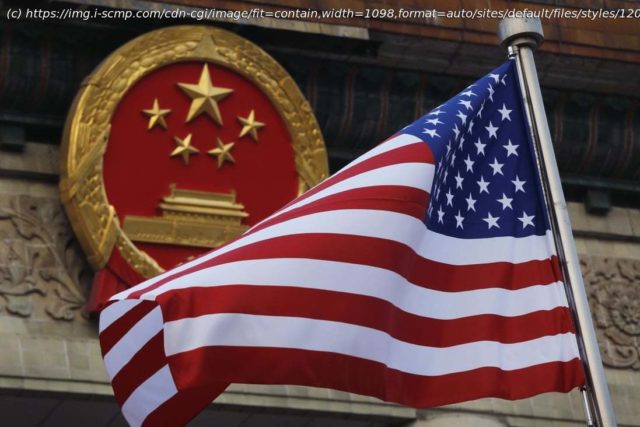Washington’s labelling of its policy on Beijing seems to looking more like the EU’s but the goal remains unchanged, observers say.
The word started gaining currency in March when European Commission chief Ursula von der Leyen used it to address the EU’s long-standing concerns over national security and trade with China. Now the United States appears to have adopted it, with Washington and its allies opting for it in a show of unity on their China strategy at the Group of Seven summit in Japan last month. “De-risking” – rather than “ decoupling ” – is now the preferred US word for its approach to relations with China, a seemingly milder concept that could suggest softening in efforts to curb Beijing’s hi-tech development. But observers say that irrespective of what term is used, Washington will not be able to paper over the cracks in its relationship with Beijing and divides remain between the European Union and the US over China. The idea of decoupling with China has been floating around since former US president Donald Trump initiated a trade war with Beijing in 2018 and threatened to separate the two economies by imposing tariffs on a large number of Chinese goods. Most of these tariffs remain in place, with the battle gradually moving to the technology front. From Trump’s 2019 ban on Huawei equipment, President Joe Biden’s administration has now moved to target semiconductor exports to China, a key element in Beijing’s military development. The White House has said repeatedly the US does not want to completely cut trade with China. In April, US national security adviser Jake Sullivan emphasised “de-risking”, saying the export controls against China were based on national security concerns to ensure “US and allied technology is not used against us”. Bates Gill, executive director of the Asia Society Policy Institute’s Centre for China Analysis, said the change in tack signalled a more practical approach in the US administration. “It is a sign of a more reasoned and realistic approach on the part of the United States in part recognition that ‘decoupling’ is not practical and in simply a more accurate term of what the United States and its allies wish to achieve,” Bates said.






